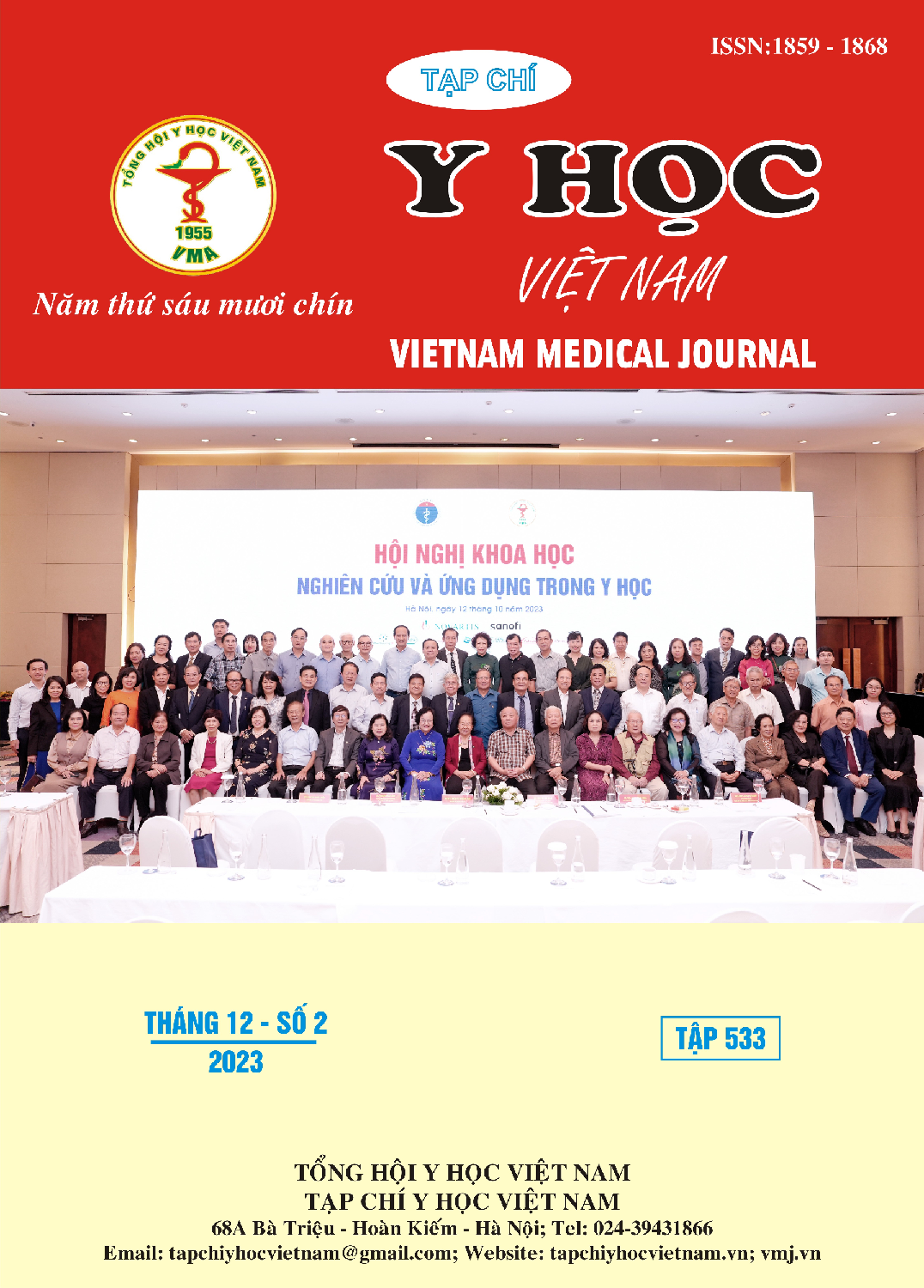STUDY BLEEDING COMPLICATIONS IN ABDOMINAL SURGERY PATIENTS USING ANTICOAGULANTS IN PROPHYLAXIS OF VENOUS THROMBOSIS
Main Article Content
Abstract
Research objectives: Frequency of hemorrhagic complications when using anticoagulants in the prevention of VTE in abdominal surgery patients at the department of gastrointestinal medicine of the People's Hospital of Gia Định. Object and method of research: The study described a series of cases, carried out on 69 medical records, in accordance with the research standards, treated at the Gastroenterology Surgery Department of the Gia Dinh People's Hospital in the period 1/2021-6/2022. Results: In our study, the bleeding rate was 7.2% with the average duration of anticoagulant use until bleeding was 3.2 days. The rates of skin hemorrhage was 4.2%, gastrointestinal bleeding was 1.5% and wound blood clotting was 1.5%, where the enoxaparin-resistant group had a 9.1% higher rate of hypertension than the gemapaxane-resistant group with a bleeding rate of 6.4%, but the difference was not statistically significant (p>0,05). We analyzed monovariants to find factors that influence the risk of bleeding such as age, gender, BMI, concomitant diseases, type of surgery, but we did not record any factors that affect the possibility of a bleeding (p>0,05). Conclusion: The bleeding rate was 7,2% with the average duration of anticoagulant use until bleeding was 3,2 days. Factors such as age, gender, BMI, concomitant diseases, and type of surgery, did not affect the possibility of bleeding when using anticoagulants (p >0,05).
Article Details
References
2. Taishi Hata, et al. (2019), "Efficacy and safety of anticoagulant prophylaxis for prevention of postoperative venous thromboembolism in Japanese patients undergoing laparoscopic colorectal cancer surgery", Annals of Gastroenterological Surgery. 3(5), pp. 568-575.
3. R. S. McLeod, et al. (2001), "Subcutaneous heparin versus low-molecular-weight heparin as thromboprophylaxis in patients undergoing colorectal surgery: results of the canadian colorectal DVT prophylaxis trial: a randomized, double-blind trial", Ann Surg. 233(3), pp. 438-44.
4. J. P. Tasu, et al. (2015), "Postoperative abdominal bleeding", Diagn Interv Imaging. 96(7-8), pp. 823-31.
5. Vietnam national congress of cardiology scientific meeting (2018), Chẩn đoán, điều trị và dự phòng thuyên tắc - huyết khối tĩnh mạch.
6. Mai Đức Thảo (2020), Nghiên cứu nguy cơ xuất hiện huyết khối tĩnh mạch sâu chi dưới lần đầu và kết quả dự phòng bằng heparin trọng lượng phân tử thấp ở bệnh nhân hồi sức cấp cứu Đại Học Y Hà Nội.
7. Nguyễn Thị Phương Thảo (2020), "Khảo sát tình hình sử dụng thuốc chống đông enoxaparin trên bệnh nhân nội trú điều trị tại bệnh viện Hữu Nghị".


